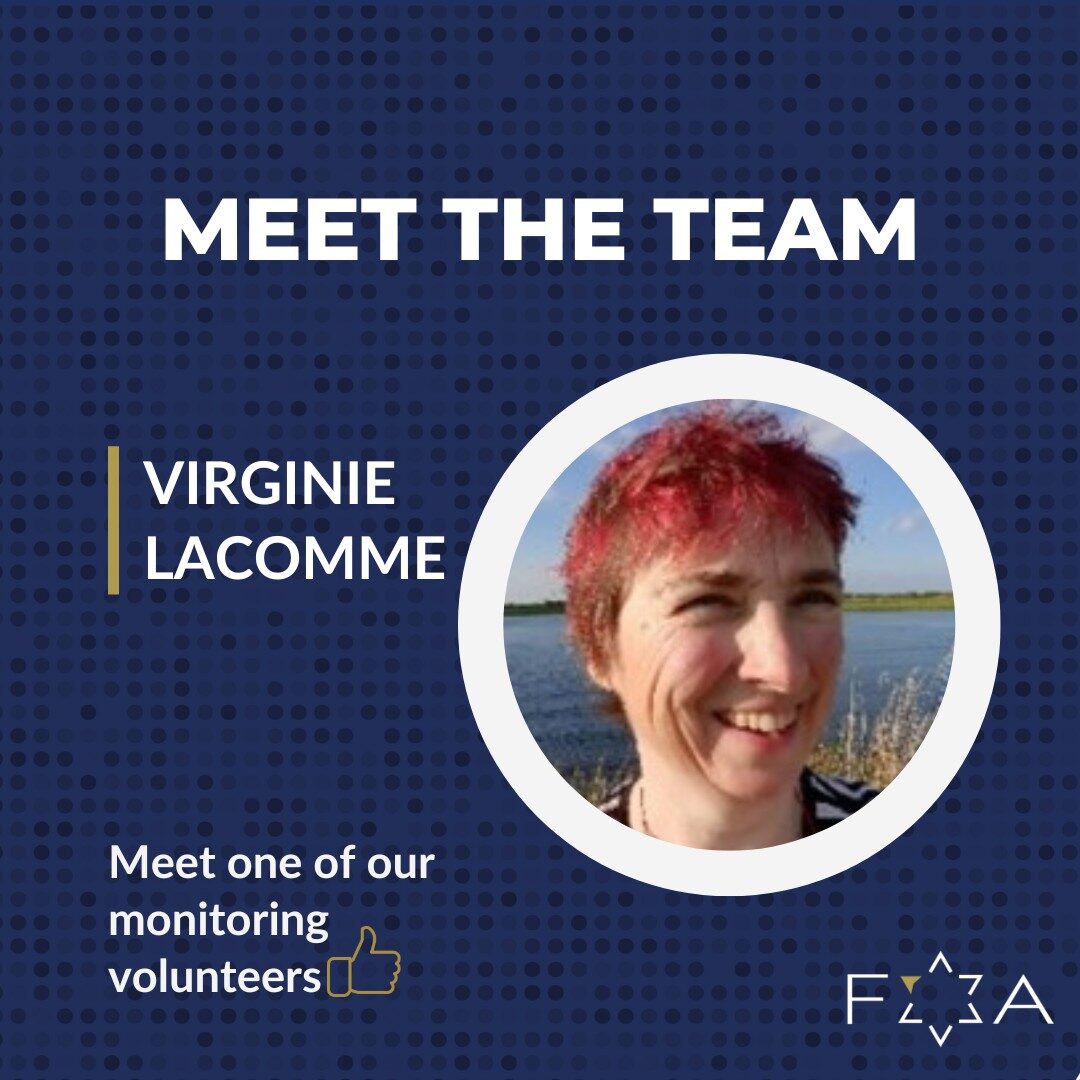Tell us a little about yourself?
My name is Virginie. I’m a 51-year-old French woman currently living in the Netherlands. Although I’m not Jewish, I’ve always felt a strong attraction to Judaism. This interest led me to complete two Master’s theses on the history of Amsterdam’s Portuguese Jewish community in the 17th century. I’m also currently learning Biblical Hebrew with Rabbi Yeshaya Dalsace from Paris and, at the same time, doing my best to learn Modern Hebrew.
Teaching French and Spanish is my main occupation. Occasionally, I also work in other language-related fields, including as a tour guide in Amsterdam’s Jewish Quarter.
What inspired you to volunteer with FOA?
My position on the situation in the Middle East has evolved over time. When I was younger, I had a rather neutral opinion; but from around 2010 onward, I began to educate myself very seriously in order to form a clearer opinion. In 2015, I was living in Paris, and the attacks in 2015 in Paris and 2016 in Nice, a city I visited often, helped me to make connections about Islamism.
When the October 7 attacks happened, I was very clear about where I stood regarding this.
I was on Israel’s side. It just so happened that on September 30th, so a few days before, I had booked a plane ticket to go to Israel for the Christmas holidays. It would have been my second trip there but I hesitated. Should I keep the ticket and go to Israel to volunteer? It was a good idea, but on the one hand, I didn’t want to be a burden on the police or the Israeli government, which had other things to do besides keeping me safe. On the other hand, I work a lot and needed a vacation. So I decided to postpone my trip and started looking for ways I could help. That’s where I crossed paths with FOA. It was perfect to me. I could help Israel without having to be in Israel. And I could do it on a flexible basis, which was very much in line with my busy lifestyle. So I’ve been an FOA volunteer since the 1st of January 2024.
How concerned are you about online antisemitism? Did you encounter online antisemitism before or after you started volunteering?
I’m very concerned about online antisemitism because online life, being anonymous, doesn’t have self regulation. Of course, I encountered antisemitism before I started volunteering with FOA. Quite a lot, in fact. So as a non-Jew, I have never been a victim in the strict sense. But indirectly, as a defender of Israel, even if I take a more moderate or nuanced position, I’m regularly the recipient of insults.
Can you tell us a bit about your role at FOA?
Essentially, I report posts on Twitter, and sometimes Instagram or Facebook, in the languages I speak (French, Spanish, Italian, English, some Dutch) or can read (Catalan, Portuguese). From time to time, Barak, the monitoring director, also asks me to provide assistance to new volunteers whose mother tongue is a language I know.
What do you enjoy about volunteering with FOA?
Let’s be clear. Given the violence of the comments I read every day, I do not enjoy volunteering with FOA. But it’s a necessary fight that has its small victories, like the removal of a particularly antisemitic account that you reported. Sometimes I feel like an undercover special agent fighting hate and injustice in the world, and that aspect is really fun. What I really like is that we’re not alone in this fight at FOA and, in this group, everyone is doing their best. I’ve had the opportunity to meet some very nice people, virtually at the moment, it’s like a small-big family. In particular, Barak, with whom I really enjoy talking and working. My trip to Israel is finally planned for next winter, so I hope to meet some of you in real life!
Has anything you’ve learned about online antisemitism surprised you?
I used to think that evil had limits. But what I’ve learned is that it doesn’t. Sorry, it’s more a disappointment than a surprise. I thought defending Hitler’s positions would be the worst I could read. But no, there are worse, for example, posts mocking the death of Kfir Bibas, which is terrible. During my university research, I read reports from the Spanish Inquisition, I read anti-Jewish treatises from the 17th century, and the antisemitic tropes haven’t changed! The problem with social networks is that they allow these ideas to be spread instantly and worldwide.
What are your hopes for the future in the fight against antisemitism?
Well, FOA is doing an amazing job of drawing the attention of social medias to the need to change their moderation rules. So I hope that the work continues and bears fruit. I’m very aware that the First Amendment is part of the foundation of society in the United States, and that is a kind of deity that can’t be touched. However, I believe there should be a measure of personal responsibility in the expression of freedom of speech. For example, a person can have free speech as they wish; but, that there are also consequences and accountability to certain types of speech that can be hateful, derogatory, divisive, and directly against other people-groups or the safety of other people-group.
On a more personal level, I’d like to combine my work as a teacher and language expert with a reflection on antisemitism in general, including on the Internet.

